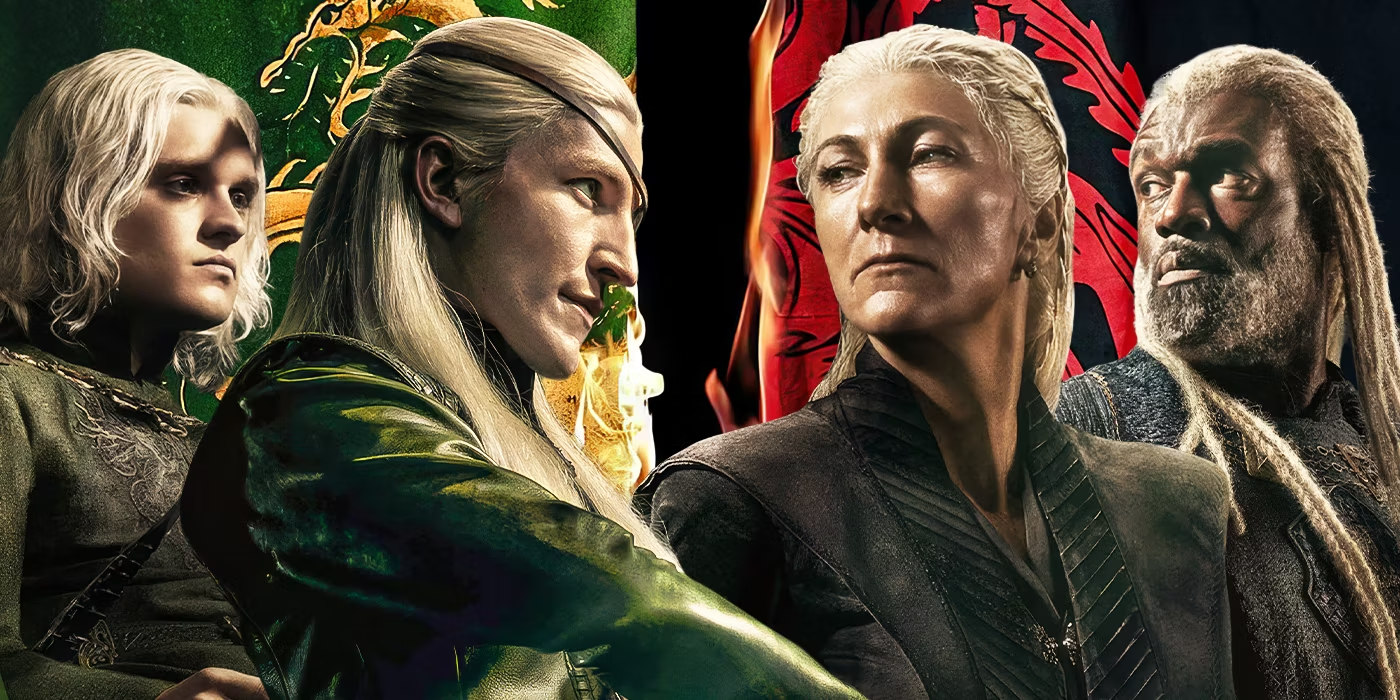With much anticipation, “House of the Dragon,” the eagerly awaited prequel to the global hit “Game of Thrones,” debuted. The show claimed to explore House Targaryen’s past and the Dance of the Dragons civil conflict, taking place centuries before the events of its predecessor. But in spite of the excitement and the rich material, “House of the Dragon” has drawn a lot of criticism. Here is a critical analysis of “House of the Dragon” to see why it does not live up to its potential.
1. Pacing Issues
The pacing of “House of the Dragon” is one of the main points of contention. The show tries to strike a beat that strikes a balance between compelling storytelling and the necessity for world-building. Even though the discussion scenes are rich in lore, episodes frequently drag since they can’t successfully advance the plot. It can be difficult for viewers to keep interested with this glacial pacing, especially if they are used to the fast-paced, dramatic storytelling of previous seasons of “Game of Thrones.”
2. Character Development
Character growth in “House of the Dragon” has also been a source of controversy. A lot of characters seem flat or lack the nuance that made the characters in “Game of Thrones” so interesting. Characters with great promise are frequently introduced in the series but are either abruptly killed off or underutilized, leaving viewers with a sense of disconnection and indifference. Because of this underdevelopment, viewers are unable to create the strong emotional connections needed to care profoundly about the characters’ outcomes.
3. Overreliance on Exposition
“House of the Dragon” makes extensive use of exposition to explain its complex political plot and past. Although exposition is vital to comprehend the intricate world of Westeros, the show frequently turns to protracted monologues and dialogue-heavy episodes, which can get tiresome. This strategy may take away from the immersive experience viewers are looking for and instead make the show feel more like a history lesson than an engaging drama.
4. Predictable Plotlines
The plotlines’ predictability is another serious shortcoming. The plot contains little surprises for readers who are already aware with George R.R. Martin’s “Fire & Blood,” upon which the television series is based. Much of the suspense and mystery in the series is taken away by the fact that the historical events are preordained. Although there could be unexpected developments if the show deviates from the original material a little, it generally sticks to the established storyline.
5. Visual and Production Choices
Although “House of the Dragon” has excellent production values, several of the film’s aesthetic and production decisions have drawn criticism. Even while the darker, subdued color scheme is meant to evoke a gritty atmosphere, it frequently makes scenes harder to see and less visually appealing. Furthermore, despite their impressiveness, the CGI dragons occasionally dominate the human drama and detract from the emotional center of the story.
6. Comparisons to “Game of Thrones”
“House of the Dragon” is inevitably compared to “Game of Thrones.” Due of the latter’s enormous success, “House of the Dragon” is viewed by many fans as lacking in contrast. It’s challenging for “House of the Dragon” to step out from the shadow of its predecessor since the complex political intrigue, nuanced personalities, and surprising turns that typified “Game of Thrones” feel diminished in the prequel.
7. Lack of Emotional Depth
An essential component absent from “House of the Dragon” is the emotional nuance that allowed “Game of Thrones” to strike a chord with audiences. Character relationships, decision-making consequences, and internal struggles can come out as flimsy. The show finds it difficult to elicit the same degree of emotional engagement in the absence of profoundly touching moments or relationships that viewers may get invested in.
FOR MORE LATEST AND INTERESTING BLOGS PLEASE VISIT OUR PAGE = https://usabloghouse.com/entertainment/
Conclusion
With its extensive history and captivating lore, “House of the Dragon” possessed the capacity to enthrall viewers. Its underwhelming characters, exposition-heavy narratives, erratic pacing, and several production decisions have, however, made it less successful. In addition to the unavoidable “Game of Thrones” parallels, the show finds it difficult to establish its own unique voice and significance. For ardent Westeros fans, “House of the Dragon” might still be appealing, but it doesn’t live up to the high expectations set by its predecessor.
